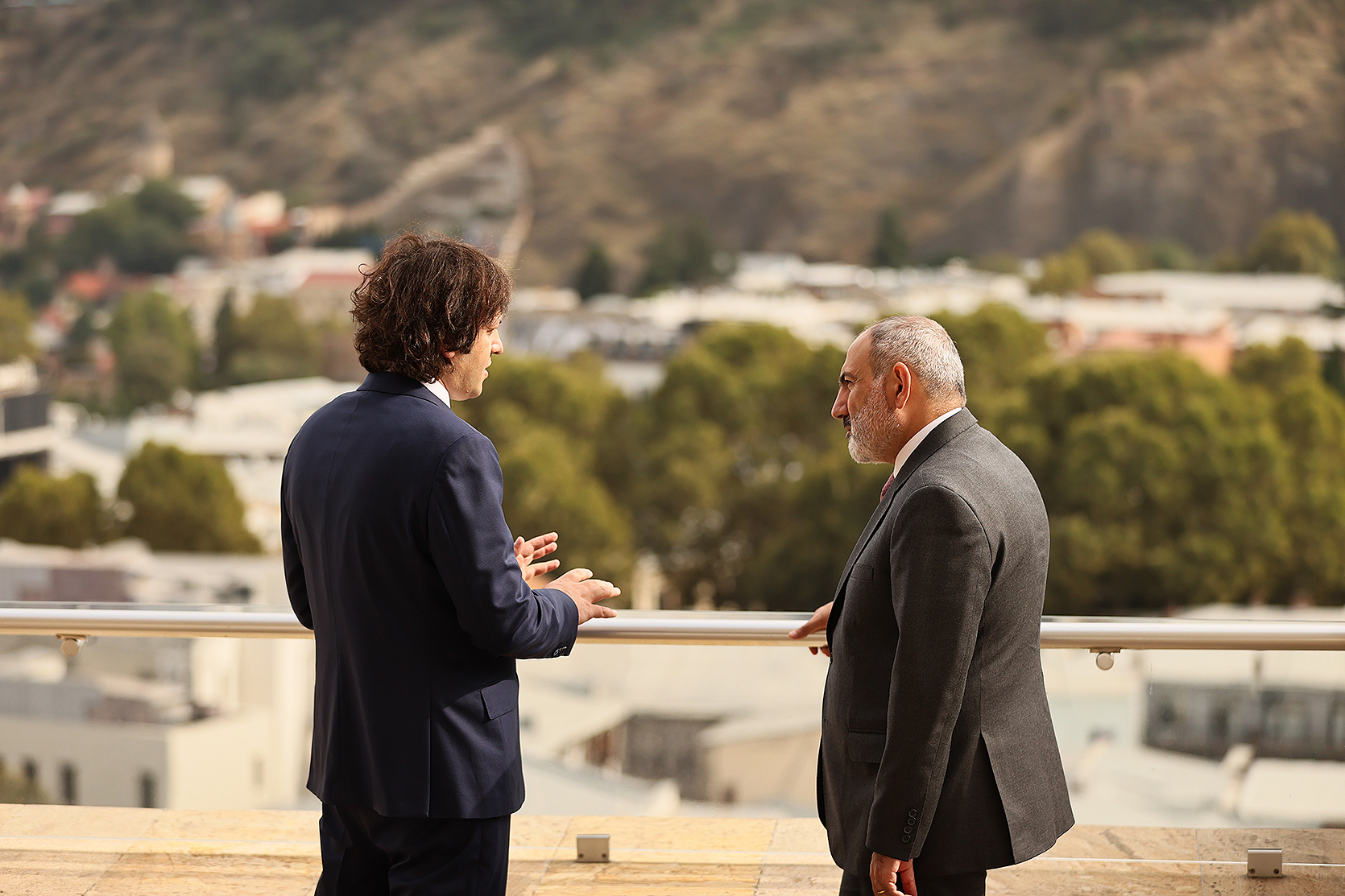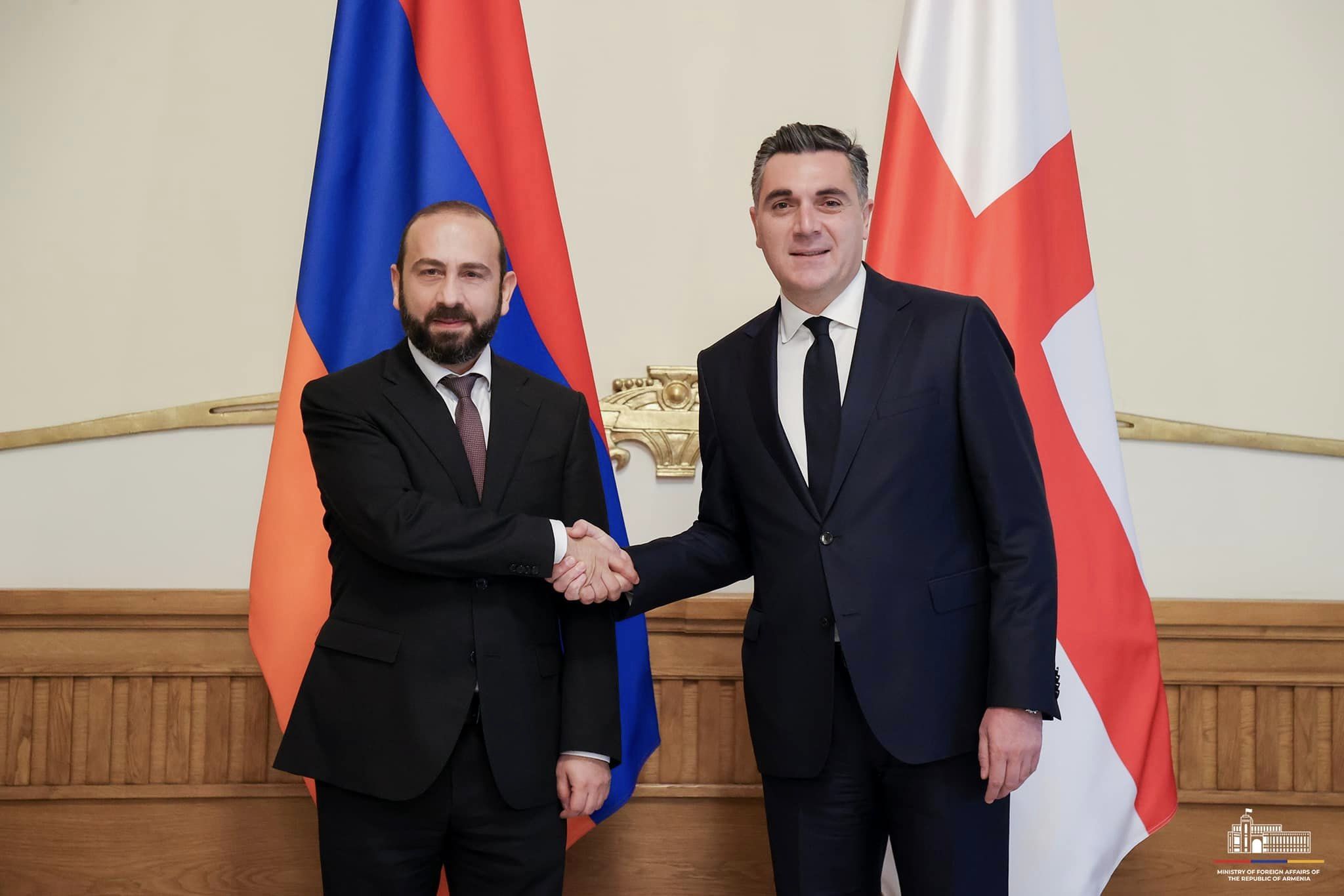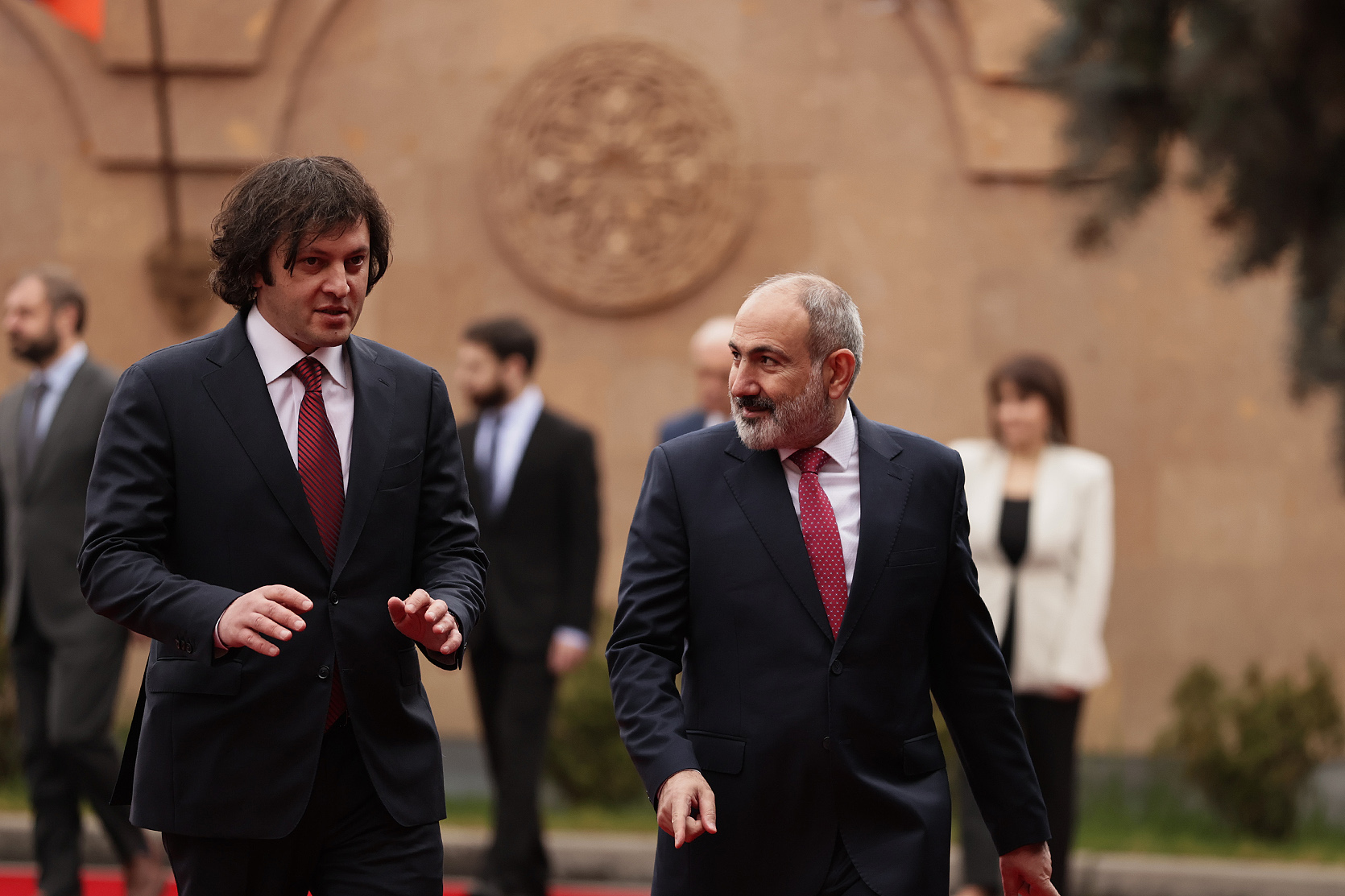
Pashinyan-Kobakhidze meeting
“Georgia supports peace and stability in the South Caucasus,” said Georgian prime minister Irakli Kobakhidze following talks with Armenian prime minister Nikol Pashinyan.
He emphasized that Tbilisi welcomes progress in resolving relations between Azerbaijan and Armenia and is ready to contribute to regional stability to the best of its ability. Armenian prime minister Nikol Pashinyan thanked the Georgian government for its efforts toward establishing peace.
“I believe we have a historic opportunity to close the chapter of conflict in the South Caucasus and establish lasting peace in the region. I’m convinced that the beneficiaries of this peace are not only Armenia and Azerbaijan, but also Georgia, Turkey, and Iran, all of whom stand to gain equally,” Pashinyan stated.
Political analyst Hakob Badalyan believes that the purpose of the meetings in Tbilisi was not solely to discuss Armenian-Georgian relations or regional issues. He points out that the Armenian prime minister traveled to Georgia just hours after meeting with the French foreign minister, who was on a visit to Armenia.
- Armenia-Georgia strategic partnership: landmark move or mere formality?
- “Armenia cannot count on integration with the West without Georgia”. Opinion
- “The future of Armenia is also being decided” – Armenian political scientist on events in Georgia
“Strategic partnership declaration has yielded practical results”
The prime minister of Georgia believes that the declaration of strategic partnership between Armenia and Georgia will further deepen relations.
“I am very pleased that the signing of the strategic partnership document has played a significant role and delivered practical results,” he said, without specifying what he was referring to.
According to Irakli Kobakhidze, relations between Armenia and Georgia are developing dynamically. All areas of cooperation—politics, economy, education, and culture—are “equally prioritized.” During a briefing, he mentioned that he and Pashinyan discussed strengthening bilateral relations in these areas, as well as regional developments.
“We will ensure progress on the Armenia-Georgia border delimitation soon”
Armenian prime minister Nikol Pashinyan also touched upon the establishment of a strategic partnership with Georgia:
“We have managed to create a viable mechanism for effective and regular contacts, based on mutual interests, principles, and democratic values. Cooperation between Armenia and Georgia is a practical reflection of our understanding of how regional relations should be—founded on mutual respect, common interests, and economic cooperation.”
Pashinyan also spoke about unblocking regional communications within the framework of his government’s “Crossroads of Peace” initiative, as well as starting the border delimitation process with Azerbaijan:
“We expect to ensure progress in the Armenia-Georgia border delimitation process, which we have already discussed. We have a shared understanding on this matter, which is very important.“
Pashinyan-Kobakhidze meeting
“We will ensure progress on the Armenia-Georgia border delimitation soon”
Armenian prime minister Nikol Pashinyan also touched upon the establishment of a strategic partnership with Georgia:
“We have managed to create a viable mechanism for effective and regular contacts, based on mutual interests, principles, and democratic values. Cooperation between Armenia and Georgia is a practical reflection of our understanding of how regional relations should be—founded on mutual respect, common interests, and economic cooperation.“
Pashinyan also spoke about unblocking regional communications within the framework of his government’s “Crossroads of Peace” initiative, as well as starting the border delimitation process with Azerbaijan:
“We expect to ensure progress in the Armenia-Georgia border delimitation process, which we have already discussed. We have a shared understanding on this matter, which is very important.“
Pashinyan-Kobakhidze meeting
Commentary
Political analyst Hakob Badalyan does not rule out that Pashinyan discussed similar issues with Kobakhidze as he did with the French foreign minister:
“Especially considering that communication and dialogue between Georgia and Euro-Atlantic countries have essentially been frozen due to recent dissatisfaction with Georgia’s internal and external policies. As for France, there are significant issues at play.”
Badalyan believes that Paris, seeking a permanent presence in the region, cannot achieve this goal without “stable and positive” relations with Georgia:
“Ultimately, this also affects the effectiveness of France’s relations with Armenia, as France’s path to Armenia goes through Georgia. There is no real alternative to this.”
The analyst observes that “fateful events” are unfolding in Georgia. He recalls the recent statement by Georgia’s informal leader, Bidzina Ivanishvili, about needing to “find the strength” to apologize to the Ossetians for the 2008 war. Badalyan thinks these are not just pre-election formalities:
“They indicate fundamental changes brewing in Georgia. It’s hard to say which direction they will take, but they will undoubtedly have a decisive impact on both Georgia and the region.”
According to the commentator, the ruling team aims not only to win the upcoming parliamentary elections but also to “close a whole political era and establish a new status quo in Georgia.” Badalyan suggests that Ivanishvili is addressing the questions posed to Georgia by the West, which is dissatisfied with Tbilisi’s policies.
He believes these processes deserve attention from both Armenia and France. He explains that Paris’s strategic interests significantly differ from other Euro-Atlantic narratives, even in a competitive sense.
“Against this complex geopolitical backdrop, Yerevan and Tbilisi face the task of deepening bilateral relations and cooperation,” notes the analyst.
In January of this year, during Nikol Pashinyan’s official visit to Georgia, Yerevan and Tbilisi signed a strategic partnership declaration that “elevates bilateral relations to a new level,” the expert recalls. He emphasizes that this new level of relations needs to be matched with substantial and meaningful content.
Pashinyan-Kobakhidze meeting



